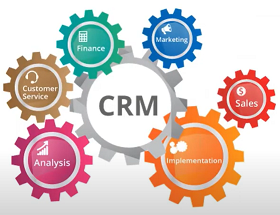
These are a few of the highlights featured in our webinar focusing on customer relationship management with Microsoft CRM online and how we can help you better define and solve your customer relationship automation and tracking needs.
Over the last year or so, Microsoft talks about a statistic that states almost sixty percent of the sales process is over before you even hear from the prospect! The customer drives the sale and what they do during the first sixty percent of the sales process is to do their own research by visiting your website and taking advantage of PDF downloads and informative videos.
Microsoft CRM software is an invaluable tool for any business. This technology can gather and manage all of your critical customer information in one place in order to keep track of leads and prospects across marketing, sales, and service. This information can help you change the way you serve your clients for the better – but only if you invest the time needed to understand how to use it.
The main components of CRM include the following aspects:
- Analysis
- Customer Service
- Finance
- Marketing
- Implementation
- Sales
Microsoft CRM is the day-to-day software that people can use to manage the sales process, manage the marketing process, and the service process.
The sales component of CRM includes a sales activity dashboard featuring the stages of the sales pipeline and the capability to drill down on open opportunities as well as activity tracking and analytics including charts and graphs depicting leads by source, top opportunities, and top customers.
The marketing component of CRM includes a dashboard that is called social listening where it tracks what people are saying about you on Facebook, LinkedIn, or Twitter forums and discussion groups in your industry.
The service component of CRM includes a case tracking system comprised of incident tickets as well as an article knowledge base system to provide additional support in case resolutions.
The software can be customized using stages whereby you can define the kind of information that you want to track and the steps that you want people to take in order to work through that process.
In CRM, the whole idea is that you have a relationship with a customer or a prospect and that you have to nurture it to be an ongoing relationship that builds trust and confidence leading to effective sales.
This and a lot more was covered in our Microsoft CRM webinar:


